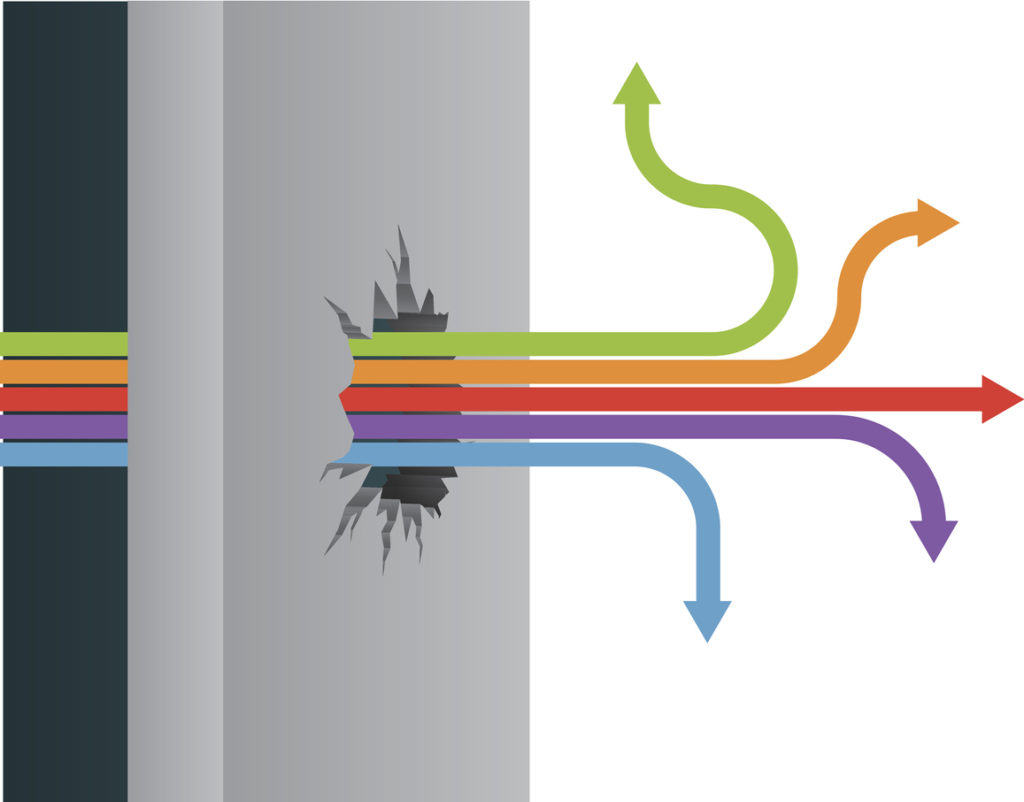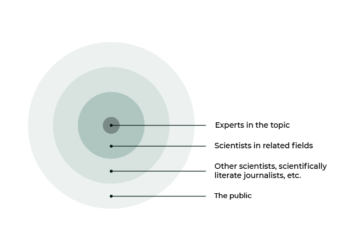Editor’s Note: Today’s post is Part 1 of 2 by Kasia Repeta, Digital Marketing Coordinator at Duke University Press and an SSP Fellow of the 2019 cohort. See Part 2 here.
Since COVID-19, scholarly communication professionals have rapidly moved their focus from predefined road maps and modes of operation to actively responding to the ongoing global health crisis, and more recently, the anti-racism protest movement. Both called for actions and awareness-building efforts. Featuring, or even freeing related content from behind paywalls, creating reading lists, and organizing webinars and discussion groups with experts on related topics are just a few examples of how our community is educating people about the issues, building their awareness, and providing them with access to research results.
The question arises: when the direct threat to global health and economies cease, and protesters leave the streets, will publishing communicators keep up this momentum and continue to rapidly utilize research-driven content to illuminate topics like climate change, racial injustice, minority rights, social justice, and sustainable development that require ongoing global attention? While it’s reassuring to know that there are already many programs and tools focused on increasing research discoverability and providing support for scientists to effectively convey the value of their research, there has never been a more important time to move from reacting to acting.
The contributors to today and tomorrow’s blog posts represent and embrace a diversity of thoughts shaped by different cultures, backgrounds, and experiences. This is a call to action for our colleagues in scholarly communications worldwide. Please share your thoughts — comments are encouraged!

We’re Just Getting Warmed Up: Embracing Pandemic Chaos with Calls to Action
Dean Smith, Director, Duke University Press
“Economics should not be the first concern when thinking about health care. The cost in human lives should be,” wrote Priscilla Wald in an op-ed piece for the Charlotte Observer in late February. She is a professor of English at Duke, an author, a journal editor, and a humanist working at the intersection of science and the humanities.
Wald reached out to me to make sure that, as her publisher, I knew that her book Contagious: Cultures, Carriers, and the Outbreak Narrative, published in 2007 was once again part of a growing pandemic discussion.
In her piece, entitled “The Best Way to Prevent an Outbreak like Coronavirus,” she also states that universal access to health care will lead to fewer sick people making it easier to contain the virus.
We now know she was clearly onto something regarding access — and so were we. A few days later, our marketing and sales department made Wald’s book freely available on our website and mobilized resources to create several open access syllabi related to the pandemic.
On March 10th, Amazon suspended the ordering of our books to focus on medical supplies. Our planned Spring Sale began on the same day as the Amazon announcement. The next day, we closed our warehouse. How does any publisher continue a Spring Sale without a warehouse and with one of our main distribution chains suspended?
Faced with being unable to sell any books at all, our sales and marketing department, editorial design and production team, and our digital publishing unit worked quickly to reinvent our supply chain and create more than 2,000 print-on-demand titles in just two weeks. Lightning Source and Ingram Publishing Services assisted in our transition to becoming a fully virtual publisher.
The pandemic created a call-to-action across Duke University Press. The staff embraced chaos with innovation and change. Designers organized virtual poetry readings with authors. Acquisitions editors engaged their communities on social media. The customer and library relations team offered trial access to content for institutions to help serve students who found themselves sheltering off-campus.
The 2020 Spring Sale broke all previous records. Orders went through our website. As the news changed each week, our list resonated in the moment. Books like Necropolitics by Achille Mbembe, The Black Shoals by Tiffany Lethabo King and In the Wake by Christina Sharpe became must-reads.
The pandemic syllabi resource center has generated 17,000 views. Contagious has generated 14,000 views on its own and tripled its print sales since January.
Professor Wald has been a great colleague since I joined Duke University Press last June. She taught me about what constitutes a Duke University Press book through an article by Patricia Hill Collins in the journal Social Problems (published by Oxford University Press in 1986) entitled, “Learning from the Outsider Within: The Sociological Significance of Black Feminist Thought”. In it, Collins argues that many Black female intellectuals have made creative use of their marginality — their “outsider within” status—to produce Black feminist thought that reflects a special standpoint on self, family, and society. Wald served as our faculty board chair for 12 years because she is intensely dedicated to the Press’s mission.
Many of our authors, like Collins, work to center historically marginalized perspectives and knowledge (e.g., ideas from the Global South, from racially marginalized communities, and from outside of heteronormative culture). By publishing their work, we draw attention to authors with compelling and progressive ideas, and to writers who are shaping the future of their disciplines.
The killings of Ahmaud Arbery, Breonna Taylor, and George Floyd hit our staff hard. Once again, we mobilized for change. Our Equity and Inclusion Task Force has organized conversations and trainings. Duke University President, Vincent Price, posted his Message about Racism and Inequality to members of the Duke community — an urgent and detailed call to action couched in the language of anti-racism. The work before us in the coming weeks is to align this call to action with every aspect of how we run our Press and to integrate an equity lens into our strategic plan.
University presses are publishing essential books that people need to read right now. Our publications strive to make the world a better, more informed, and more equitable place. How do we break down the barriers of access to ensure that everyone who needs to can access our publications?
As publishers, we must invest in openness and accessibility to peer-reviewed knowledge. We must also ensure that anti-racism guides our policies, practices, and publications. As stated in the recent Statement on Equity and Antiracism from AUPresses:
Our task now is to reimagine the audiences and communities we seek to serve, the author and reviewer networks we rely on, the vendor and supplier networks we enlist, and the other structures that have excluded marginalized communities from our industry. We need to reconsider unpaid internships and low-wage entry points to our industry, as well as the recruitment and promotion strategies that have historically resulted in pay gaps and other inequities. Perhaps most important, we need equity training at the organizational level, so that those from underrepresented communities who join our industry are welcomed and empowered to lead our organizations forward in new directions.
In short, we must build a culture of introspection, honesty, humility, inclusion, and trust.
Despite this essential work, we still constantly hear the familiar refrain that university presses are facing an existential threat. That’s become a rallying cry as we move forward together as a community. Humanists like Priscilla Wald will be publishing books and journal articles about the catastrophic response to the pandemic and the global effort to end racism for the next one-hundred years.
We’re just getting warmed up.
Lowering the Barriers to Entry for the Communities We Serve
Anne-Marie Green, Web Communications Manager, Brandeis University
After working in marketing and communications for scholarly publishers Wiley, Blackwell, and Elsevier, I’ve just recently transitioned to a communications position in higher education at Brandeis University. Not surprisingly, the tenets of effective content marketing and communications remain the same across industries, but the tone has changed. This year, perhaps more than ever, it’s essential to create community online while acknowledging the state of the world we’re living in.
Community is now online-only
With every conference and in-person event canceled, we have new opportunities to lower the barriers to entry for the communities we serve. Our only interface with customers, partners, and stakeholders is online, which challenges us to create content and experiences that are meaningful, cognizant of the times, and, wherever possible, free. Free means that people who previously couldn’t afford to travel to or register for an in-person event can develop and benefit in ways they may not otherwise have been able to. Free webinars, podcasts, toolkits, and even topical Zoom meetings can potentially include those who would otherwise be excluded.
Maybe more importantly, no one wants to feel alone, either physically or in terms of their circumstances. This powerful blog series launched by Springer Nature’s The Source sheds light on researchers’ unique challenges during the pandemic, using first-hand accounts. Wiley’s This Study Shows podcast recently focused on science communication during COVID-19 and can be played while out for a walk or while doing the 11th daily round of dirty dishes.
Meet your audiences where they are as researchers and professionals with distinct circumstances, but also as humans with universal trials and concerns.
Be direct, be human, and be prepared to change
The events of the past few months have made it impossible for organizations to carry on as usual without acknowledging the pain and suffering the world is experiencing. Corporate and institutional statements vary, but those that are forthright and speak plainly, without platitudes, are the ones that resonate. This statement by the President of Emerson College in the wake of George Floyd’s death is one example. Whether it’s addressing the challenges of COVID-19 or standing in solidarity with Black Lives Matter, it’s important that organizations walk the talk and acknowledge their own shortcomings, while making actionable plans to offer support or make meaningful change. Over the past few weeks I’ve seen many scholarly societies not only voice support for the Black Lives Matter movement, but also articulate how they plan to do better for their own constituencies.
The time to acknowledge everyone’s humanity above all else is here and, with any luck, it’s here to stay.
Young Nigerian Librarians on the Front of New International Collaborations
Basiru Adetomiwa PhD, Senior Librarian, Tekena Tamuno Library, Redeemer’s University, Nigeria
Nigerian libraries are presently undergoing changes in the new information age due to the speedy increase in user preferences and expectations, competition from other information providers such as the internet-at-large, and declining library budgets. These require our library and information science professionals to leverage competitive marketing methods to deliberately reorient themselves and their libraries as information heavyweights that the populace cannot do without. While learning as well as performing these new roles, community engagement was a key factor — the days are past when Nigerian librarians used to work in isolation within the comfort of their job schedules in the library building.
Specifically, scholarly communication librarianship requires lots of advocacy and outreach skills as there are many questions from both early career and advanced researchers on communication’s changing dynamics. In the course of my job, I have met with faculty members at varying levels of career experience, and answered an extensive range of questions from them on subjects such as publication venues, open access, open science, Article Publication Charges (APCs), predatory journals, Impact Factors, single/multiple authorship, copyright, etc. Although some of these questions were asked and answered at a personal level, they also informed our choices in the type of outreach programs we organized to educate faculty members at larger fora such as symposia, seminars, workshops, etc.
Nigerian librarians have been able to reinvent the role of the library in the minds of faculty members, students, and administrators by leveraging interpersonal communication skills, taking initiative, and being adventurous and creative. This has also connected young librarians like me with new opportunities to collaborate beyond our institutions and countries. I am currently part of national and international communities of stakeholders in the field of scholarly communication with a series of collaborative projects and concepts in the build. Within the academic/research institution, librarians are a part of multidisciplinary research and grants sourcing teams. We offer the knowledge needed to introduce societal change but also seek publishers’ help in better understanding content, educating academic communities about publishing workflows, and supporting libraries in community engagement work.
Conclusion
This first set of ideas and calls to action is just a representation for what can be done if we all embrace this important time in history and act toward contributing to solve some of the most pressing global issues. More contributions from more authors tomorrow — we look forward to hearing your thoughts in the comments below.



